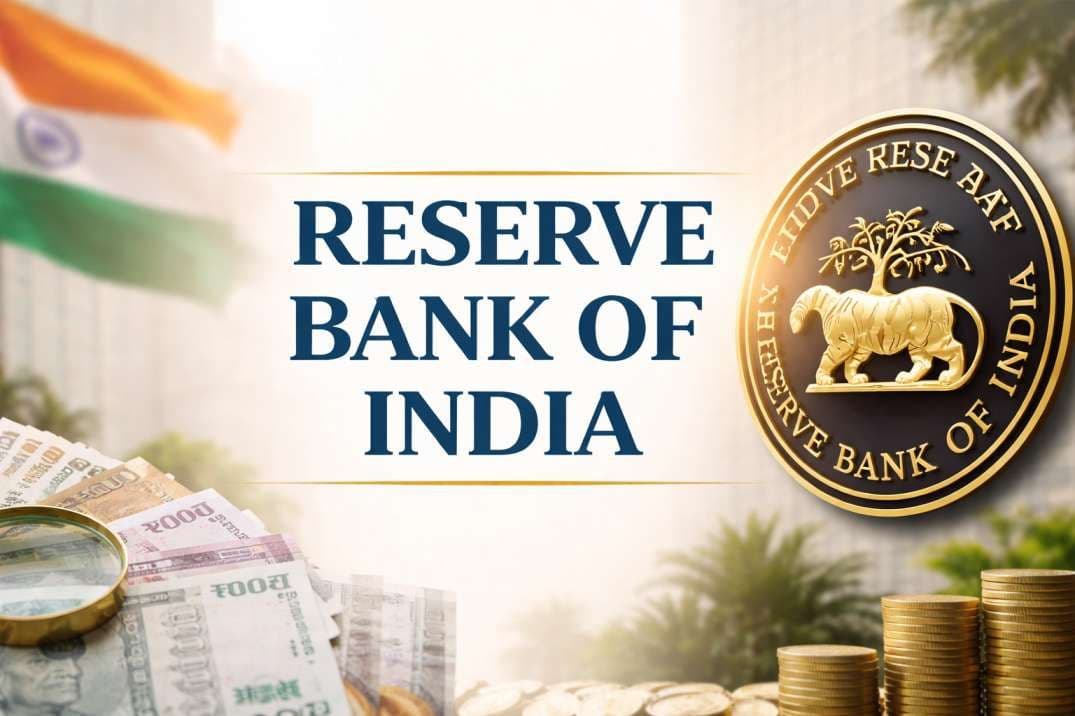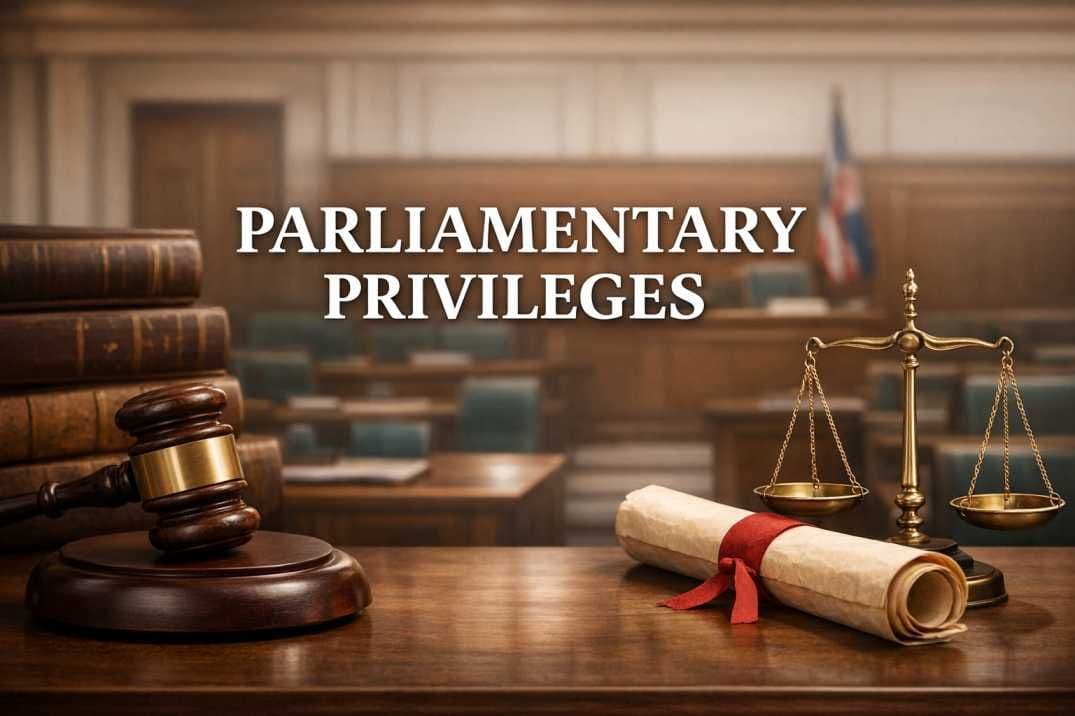Comptroller and Auditor General of India (CAG) – Complete UPSC Notes
Aug, 2025
•4 min read
The Comptroller and Auditor General of India, established under Article 148 of the Constitution, acts as the nation’s independent financial watchdog. It audits all government expenditures to ensure legality, efficiency, and transparency.
Dr. Ambedkar called the CAG a bulwark of democracy, one of the key institutions, along with the Supreme Court, Election Commission, and UPSC, that protects India’s constitutional system and keeps government honest.
- Guardian of Public Money: The CAG oversees government finances at both the Central and state levels.
- Upholds the Constitution: Ensures financial administration follows the Constitution and laws of Parliament.
- Keeps Spending Honest: Promotes transparency and accountability, strengthening India’s democracy.
Constitutional Provisions of CAG: Articles 148-151 for UPSC
The Constitution provides specific articles that define the CAG's role and powers:
- Article 148: Establishes the independent office of CAG.
- Article 149: Defines the duties and powers of CAG in auditing Union and State accounts.
- Article 150: Empowers the President, with CAG's advice, to decide how government accounts should be maintained.
- Article 151: Requires CAG to submit audit reports to the President/Governors, who then place them before Parliament/State Legislatures.
- Article 279: CAG certifies "net proceeds" of taxes, and this certificate is final.
Also read: Article 370 of the Indian Constitution: 6 Years After Abrogation
Appointment and Tenure of CAG of India
Choosing the Comptroller and Auditor General of India and fixing their term is crucial to ensure that public money is audited fairly and the government is accountable.
- Appointment: By the President of India via warrant under seal.
- Term: Six years or until age 65, whichever comes first.
- Oath: Takes an oath to uphold the Constitution and perform duties impartially.
- Reappointment: The Constitution does not allow reappointment to the same office.
- After Term: Cannot hold any further government office after tenure ends.
Removal Process of CAG of India: Constitutional Safeguards for UPSC
The Constitution protects the CAG’s job security, allowing removal only through the same tough process used for Supreme Court judges.
- Security of Tenure: CAG does not hold office at the President's pleasure.
- Removal Process: Similar to Supreme Court judges, it requires a special majority resolution by both Houses of Parliament.
- Grounds: Only on proven misbehaviour or incapacity.
- Independence: Strong constitutional protection ensures CAG can work without political pressure.
Comptroller and Auditor General of India: Powers and Functions
The CAG safeguards accountability by auditing all government spending, from daily expenses to major policies. Here are the key points:
1. Financial Audit Powers
- Audits all expenditure from the Consolidated Funds of India and the States.
- Examines Contingency Funds and Public Accounts at all levels.
- Audits trading, manufacturing, profit and loss accounts of government departments.
- Reviews receipts and expenditure to ensure proper revenue collection.
2. Audit Scope and Authority
- Audits government debt, deposits, advances, and suspense accounts.
- Can audit any authority when requested by the President/Governor.
- Has access to all government records and documents needed for audit.
3. Reporting Function
- Submits audit reports to the President (for the Centre) and Governors (for States).
- Reports are laid before Parliament and State Legislatures.
- Certifies net proceeds of taxes under Article 279.
Multiple Choice Questions
QUESTION 1
Easy
Indian Polity
Which of the following is/are part of the CAG’s audit mandate?
-
Audit of Consolidated Fund of India
-
Audit of State Government accounts
-
Audit of government companies and authorities funded by government
Select the correct answer using the code below:
Select an option to attempt
Understanding the Relationship Between CAG and Public Accounts Committee
The CAG works closely with the Public Accounts Committee (PAC) to ensure government accountability. Here are the key tasks:
- Reports Submission: CAG submits three types of audit reports-appropriation accounts, finance accounts, and public undertakings.
- PAC Examination: Parliament's PAC examines these reports and submits findings.
- Checks and Balances: CAG helps PAC ensure proper government spending.
- Advisory Role: CAG acts as a guide, friend, and philosopher to the PAC.
Independence of CAG: Constitutional Safeguards
The CAG’s independence is guaranteed by the Constitution to ensure unbiased and fearless auditing.
1. Financial Independence
- Administrative expenses charged to the Consolidated Fund of India (not subject to Parliamentary vote).
- Salary equal to Supreme Court judge, determined by Parliament.
- Service conditions cannot be altered to CAG's disadvantage during tenure.
2. Administrative Independence
- No minister can represent CAG in Parliament.
- No minister is responsible for CAG's actions.
- Security of tenure with constitutional protection.
Also cover this key topic here: Mahanadi River Inter-State Water Dispute
Comptroller and Auditor General of India (CAG): Challenges and Limitations
Despite its important role, the CAG faces several hurdles that can weaken its effectiveness:
- Limited Enforcement Powers: Can’t force ministries to hand over records quickly, causing audit delays.
- Secret Service Expenditure: Must accept certificates for confidential spending without detailed scrutiny.
- Post-Facto Audits: Audits happen after funds are spent, so it can only report problems, not prevent them.
- Scope Ambiguity: Unclear if the CAG can audit PPPs, power companies, or emerging sectors like climate finance.
- Single-Member Office: Lacks the collective decision-making of a multi-member body, which may limit diversity of oversight.
Master UPSC Current Affairs with Monthly Magazine
Current Affairs Simplified: Dive deeper into topics & practice MCQs
Download Monthly PDF'sStrengthening the Role of CAG: UPSC Mains Way Forward Perspective
The CAG needs smart reforms to stay strong, independent, and ready for future challenges:
- Collegium Mechanism: Set up a panel like the CVC to pick CAG leaders for true independence.
- Expand Coverage: Bring PPPs, Panchayati Raj Institutions, and all government-funded societies under CAG audits.
- Time-Bound Access: Require departments to hand over records within seven days to avoid audit delays.
- Punitive Powers: Give CAG authority to penalise agencies that stall or withhold information.
- Multi-Member Structure: Consider evolving CAG into a panel like the Election Commission for diverse oversight.
Conclusion
The CAG is the financial guardian of our democracy, ensuring public money is used honestly and wisely. It has exposed major irregularities and upheld accountability, but needs reforms in appointments, enforcement, and audit scope to serve even strongly.
For UPSC aspirants, understanding the Comptroller and Auditor General of India (CAG) is crucial as it is a key pillar of financial accountability and democratic governance. Mastering this topic in Indian Polity will give candidates a clear edge in both Prelims and Mains exams.
Supercharge your UPSC prep with SuperKalam, your personal mentor for instant doubt clearing, smart study plans, PYQs practice, and Instant Mains Evaluation.
Explore SuperKalam’s Resources today and take the first step on your path to UPSC success!
Download the SuperKalam app now to experience personalised, AI-powered UPSC guidance anytime, anywhere.


